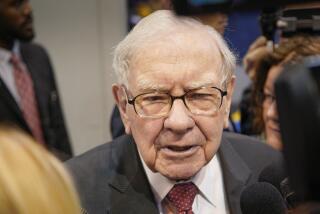Kirk Douglas gave millions for Hollywood’s Alzheimer’s patients
Beloved actor Kirk Douglas was known for his iconic roles on the big screen, but behind the scenes he played a major role in supporting one of Hollywood’s oldest charities: the Motion Picture & Television Fund.
Douglas and his wife Anne were among the biggest individual contributors to MPTF in its history, giving more than $40 million to the nonprofit organization charged with providing healthcare and other services to entertainment industry workers, said Bob Beitcher, the fund’s president and CEO.
In 2015, the couple gave $15 million to build the Kirk and Anne Douglas Care Pavilion, a 50-bed memory-care unit that will open in the near future. They previously donated $20 million for general purposes and $2 million for Harry’s Haven, a residential home for patients with Alzheimer’s and other forms of dementia that was created in 1992.
Kirk Douglas named Harry’s Haven after his father Harry Demsky, because he had named his production company after his mother and felt “that he needed to balance the scales,” Beitcher said.
According to Beitcher, Douglas’ connection to Alzheimer’s disease dates back to the time he and Anne were living in New York City. One of their neighbors was Abe Ribicoff, former governor of Connecticut and a former U.S. senator. Ribicoff was diagnosed with Alzheimer’s and his wife refused to put him in an institution, fearing the care he might receive there and who he would be living with.
Douglas witnessed the toll the disease took on the Ribicoffs and decided he wanted to create an Alzheimer’s unit that was a “wonderful, caring, compassionate place where the person afflicted could live, but also where a family member would feel comfortable leaving their family member to live,” Beitcher said. “It was as much for the caregiver as the resident.”
In 2015, when the fund announced plans for the new pavilion, Douglas said: “We wanted visitors as well as patients to experience a warm and loving environment, and MPTF has fulfilled our wishes admirably.”
Quibi Chairman Jeffrey Katzenberg, chairman of the MPTF Foundation’s board of governors, described Douglas as his mentor. “Kirk Douglas was a true hero of mine,” he said in a statement. “From movie star to movie mogul to philanthropist, I never stopped being inspired by him and learning from him. He was one of the greatest ... ever!”
Last year, MPTF built a bigger facility for Alzheimer’s patients with the addition of 10 beds for a total of 40 residents. The space is brighter and the hallways are bigger. Beitcher and others visited the Dementia Village in Hogeweyk, Netherlands, and borrowed some of the elements. There are five work stations that mimic life situations for residents like a laundry, office and grocery store.
“We tried to do our urban version of Hogeweyk,” Beitcher said. Douglas donated signed vintage movie posters of his that line the walls. “Kirk was always so amazing to us, he understood profoundly the hardships of people working in this industry have and he always wanted to make sure to give back to those in need. He felt this deep in his bones.”
Until he became too weakened to visit a few years ago, Douglas, who died Wednesday at age 103, used to come to MPTF and visit Harry’s Haven once or twice a year. “He’d stroll or wheel through Harry’s Haven and inspect everything and take comments,” he said.
Beitcher recalled a visit where one of the residents with advanced Alzheimer’s trash-talked Kirk. “He had no filter, and I introduced him and said this is Kirk Douglas.” The resident said, ‘you’re not ... Kirk Douglas. ... you!’” Kirk just rolled with and kibitzed with the guy and took all the trash talk and moved on.”
The last time Beitcher saw him was at an event last year at the Kirk Douglas Theatre in Culver City. Hugh Jackman and his wife Deborra-Lee Furness read Anne and Kirk’s love letters. It was a fundraiser for the Century Theatre Group and MPTF.
After the performance, “Anne pointed to Hugh and said, ‘I should have married you!’ It was a brilliant moment for everyone. We were thinking this might be one of the last times we see him.”
More to Read
Inside the business of entertainment
The Wide Shot brings you news, analysis and insights on everything from streaming wars to production — and what it all means for the future.
You may occasionally receive promotional content from the Los Angeles Times.










